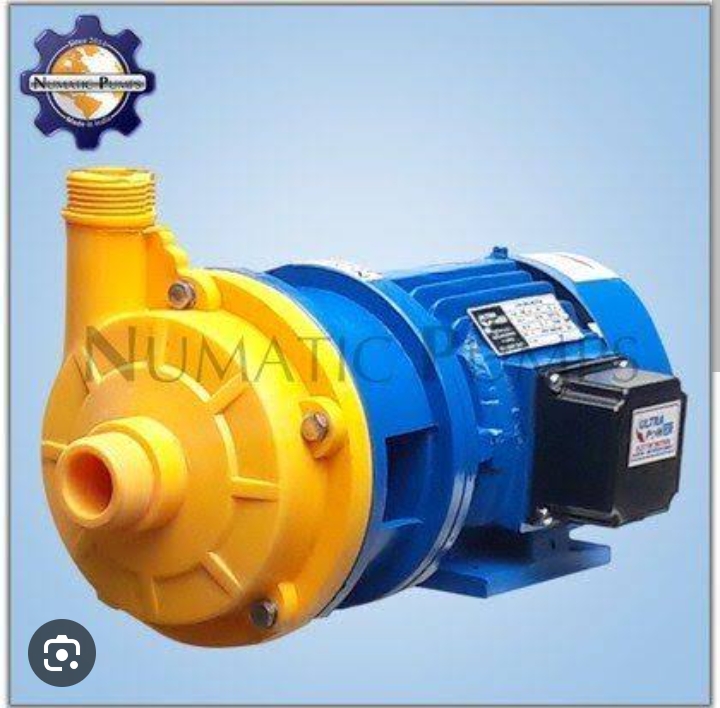Introduction
Hydrochloric acid (HCl) is a highly corrosive and hazardous chemical that finds extensive use in various industries. From metal etching and pickling to water treatment and chemical manufacturing, HCl plays a vital role in numerous processes. However, due to its corrosive nature, the safe handling and transfer of HCl require specialized equipment. In this article, we will explore the importance of HCl pumps, their unique considerations, and their role in ensuring the safe and efficient handling of hydrochloric acid.
The Significance of HCl Pumps
HCl pumps are specifically designed to handle the challenges posed by the corrosive nature of hydrochloric acid. These pumps provide a reliable and efficient solution for transferring HCl in various industrial applications, ensuring the integrity of processes and minimizing the risks associated with handling this highly reactive chemical.
Considerations for HCl Pumps
Corrosion Resistance, The corrosive nature of HCl necessitates the selection of materials that can withstand its effects. HCl pumps are typically constructed with materials such as stainless steel, high-performance plastics, or specialty alloys that offer excellent corrosion resistance. The choice of materials should be based on the concentration and temperature of the HCl being handled.
Seal Options
Effective sealing is critical to prevent leaks and protect personnel and equipment. HCl pumps utilize sealing mechanisms that are resistant to the corrosive nature of the acid. Mechanical seals, chemical-resistant O-rings, or specialized seal-less designs may be employed to ensure a tight seal and prevent leakage.
Venting and Fume Control
HCl pumps should incorporate appropriate venting and fume control systems to minimize the release of hazardous vapors. This helps protect the environment and ensure the safety of workers in the vicinity of the pump.
Safety Features
HCl pumps should be equipped with safety features such as leak detection systems, pressure relief valves, and alarms to alert operators of any potential issues. These features help mitigate risks and ensure safe operation.
Applications of HCl Pumps
HCl pumps find extensive applications in industries such as:
Chemical Manufacturing, HCl pumps are crucial for the safe transfer of hydrochloric acid during chemical production processes. They enable the precise dosing and mixing of HCl in reactions, ensuring efficient and controlled chemical synthesis.
Metal Processing
HCl is commonly used for metal etching, pickling, and surface preparation. HCl pumps facilitate the circulation and transfer of acid solutions in metal treatment processes, contributing to the removal of scales, oxides, and other contaminants.
Water Treatment
Hydrochloric acid is employed in water treatment facilities for pH adjustment, disinfection, and the removal of metal ions. HCl pumps enable the accurate and controlled dosing of acid, ensuring the effectiveness of water treatment processes.
Laboratory Applications
HCl pumps are utilized in laboratory settings for various applications, including sample preparation, pH control, and chemical analysis. These pumps allow for precise and controlled dispensing of hydrochloric acid in lab experiments and research.
Safety Considerations
When handling HCl pumps, several safety precautions should be taken, including:
Proper Ventilation, Ensure proper ventilation in areas where HCl pumps are operated to prevent the buildup of fumes and ensure a safe working environment.
Personal Protective Equipment (PPE)
Personnel should wear appropriate PPE, including gloves, goggles, and chemical-resistant clothing, when working with HCl pumps to protect against potential splashes or exposure.
Training and Procedures
Proper training should be provided to operators on the safe handling, maintenance, and emergency procedures associated with HCl pumps. Clear guidelines and protocols should be established to ensure safe operations.
Conclusion
HCl pumps are essential for the safe and efficient handling of hydrochloric acid in various industrial applications. By considering factors such as corrosion resistance, sealing mechanisms, and safety features, HCl pumps enable the reliable transfer of this highly corrosive chemical. Proper selection, installation, and maintenance of HCl pumps ensure the integrity of processes, protect personnel, and mitigate environmental risks, enabling industries to utilize hydrochloric acid effectively in their operations.





























